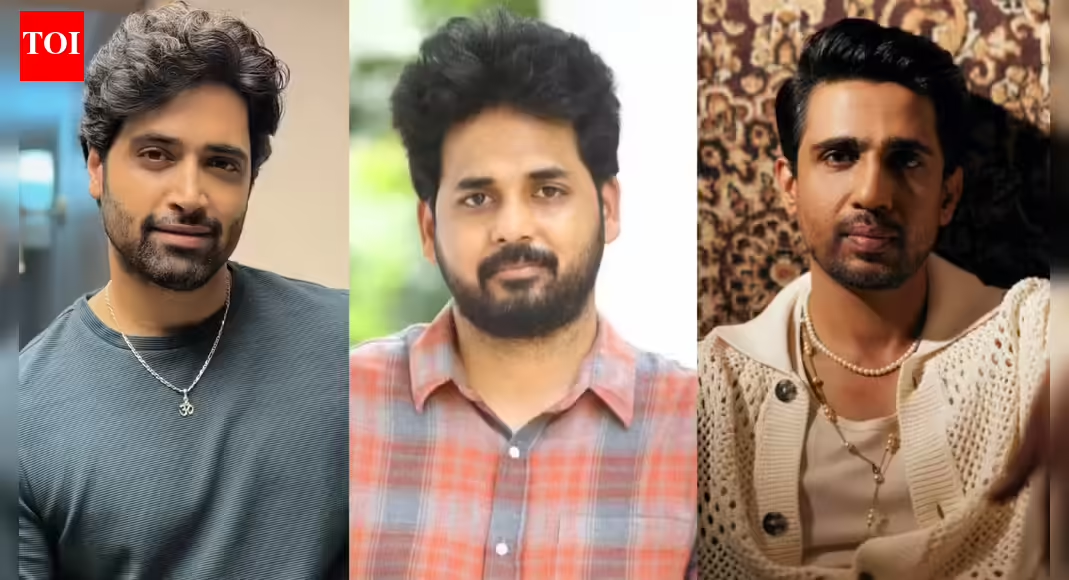‘It’s healthy to express emotions… silence shouldn’t define masculinity’

Societal pressure for men to be stoic hinders emotional well-being, with alarming suicide rates highlighting the cost of silence. Celebrities share their struggles with mental health, emphasizing the need for open conversations and the power of cinema to normalize vulnerability. They advocate for a broader definition of strength beyond stoicism. The cultural pressure on men to remain stoic continues to restrict open conversations about emotional well-being. This fear of appearing vulnerable often pushes discussions about mental health to the margins. According to The International Journal of Indian Psychology, male suicide rates in 2022 were nearly four times higher than those of women, signalling the steep cost of silence. On International Men’s Day, Hyderabad Times looks at how men in the spotlight navigate mental-health challenges, the coping mechanisms they rely on, and whether cinema can shift attitudes by portraying emotionally honest male characters.I see emotional release as essential: Gulshan Devaiah“I see cinema as a form of emotional therapy. Movies make you cry, make you feel emotions I often suppress in everyday life. As men, we’re told not to cry, but watching something moving allows me to release those feelings, and there’s nothing wrong with that. I also think that’s why many guys turn to battlefield games; it becomes a safe way to release frustration and emotions we usually bottle up.”
Struggling with Emotions? Here’s the Secret to Mastering Them
I’m pushing myself to open up more: Adivi Sesh“People don’t treat mental illness the way they treat physical illness, and we forget that the brain needs care too. Growing up in the US, no one explicitly told me not to cry, but subconsciously, through culture and the people around me, I became someone who didn’t express emotion. Now, expressing myself feels healing, even though I have to push myself through it.”I want to normalise sensitive male characters: Vivek Athreya“Pretending to be ‘always strong’ feels suffocating. At the end of the day, we’re human, and I have my own vulnerabilities. I believe cinema can change perceptions. When I create vulnerable male characters, I see it as a way to challenge the idea that showing emotion is unmanly. Cinema can definitely inspire people. Strength and vulnerability coexist for me, and when characters reflect life’s complexities — instead of just being muscular heroes fighting ten enemies — it shows that real strength also includes the courage to be vulnerable.”I reject the idea of the so-called alpha male: Rahul Ravindran“As men, we carry the weight of societal expectations, especially around career success and the idea that our worth is tied to achievement. The whole ‘alpha male’ concept adds even more pressure, pushing us to believe that strength alone defines us. To me, true strength is being secure and not letting societal pressures dictate my mental health. It takes a lot of inner work to reach that point.”I’m learning to unlearn what “man up” means: Sailesh Kolanu“In India, men are expected to start providing as early as 18 or 19, so that pressure to ‘be strong’ begins very young. I grew up hearing ‘man up,’ and vulnerability was treated like a flaw. That constant fear of not providing enough for my family is always there, and I know a lot of men relate to that. So for me, identifying what brings peace when I’m alone is essential. My parents’ generation believed men shouldn’t express themselves, but I don’t want my son to grow up with that mindset. Thankfully, Gen Z and millennials are far more open about mental health. When I’m creating characters for film, I find that vulnerability is what makes them human. Striking a balance between strength and vulnerability brings depth and realism.”Where men’s mental health stands today
- 40% have never spoken to anyone about their mental health
- 77% have experienced anxiety, stress, or depression
- 20% cite negative stigma as the reason they remain silent
- 29% say they don’t open up because they feel “too embarrassed”
- 1 in 8 men report symptoms of mental health problems
(According to Priory Mental Health & Addiction Services)— Divya Shree





